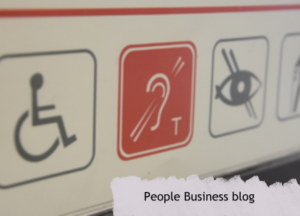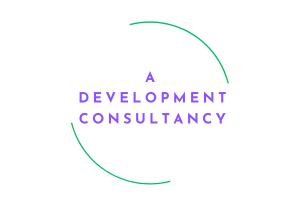Employing People with Disabilities
 3rd December marks the International Day of Persons with Disabilities. In this article, we celebrate four advantages of employing people with disabilities and answer some frequently asked questions.
3rd December marks the International Day of Persons with Disabilities. In this article, we celebrate four advantages of employing people with disabilities and answer some frequently asked questions.
Four advantages to employing people with disabilities
- High work quality: a study carried out by the Institute of Corporate Productivity shows that 3 out of 4 employers ranked disabled employees to be just as good as – or better than – others in terms of work quality, attendance and motivation. Like most employees, a job means a great deal for a disabled person. This is largely because there are relatively limited employment opportunities, so disabled people are most likely to be highly motivated to prove valuable to the company, translating into equal or better work performance.
- Improved culture: employers who already have disabled people in their workforce agree that providing employment opportunities to disabled people promotes a sense of inclusiveness in the workplace. This in turn improves the overall quality of the culture, improving job morale and developing more empathetic behaviour towards each other and even towards customers.
- Higher staff retention rates: disabled employees are more likely than other candidates to seek job stability, as they face certain difficulties when job searching. They are more likely to stay with a company for a long time, meaning that recruitment and training costs are less likely to be wasted.
- A wider talent pool: The UK has around seven million people of working age with a disability or long-standing health condition, yet only about half of them are in work (source: CIPD). This represents a huge pool of untapped talent. In today’s economic climate, every company wants the best employees – why omit a perfectly relevant and deserving group of people?
Frequently asked questions
- What is a reasonable adjustment?
Under the Equality Act 2010, all employers must make reasonable adjustments for disabled applicants and employees to create fair access to employment opportunities for disabled people and to ensure that they are not seriously disadvantaged when doing their job. A reasonable adjustment is based on understanding what will enable the employee to best perform in the role.
- Can you give me an example of a reasonable adjustment?
Reasonable adjustments can take many forms and don’t necessarily cost much. Examples include:
-
- Providing training or mentoring
- Making changes to a disabled person’s working pattern
- Ensuring that information is provided in accessible formats
- Modifying or acquiring equipment
- Installing a ramp.
When recruiting, a reasonable adjustment may mean, for example, adjusting the process. An online application and formal interview process can unfairly prohibit people with a learning disability from demonstrating their ability to fulfil a role. A reasonable adjustment, therefore, could be to consider other ways for people with a learning disability to apply, for example, using work trials rather than a formal interview. The adjustments needed are not extensive, and only need to be made if applicable in the context of job.
- Does employing a person with a learning disability mean they’re exempt from the disciplinary process if they underperform in their job?
No. You should treat employees with a learning disability the same as any other employee. Provided that the correct HR procedures have been followed and reasonable adjustments have been made to accommodate any additional needs prior to it reaching disciplinary stage, this is perfectly acceptable.
- I’ve heard about Access to Work, what is it and how can it support us in employing a person with a learning disability?
Access to work is a publicly funded employment support programme that aims to help those with disabilities to start or sustain employment. Access to work can help to pay for any additional support needed because of a disability or long-term health condition. It can provide practical and financial support, including:
-
- Aids and equipment adaptations
- Funding for additional travel costs to and from work, for example, taxis, for those who are unable to use public transport
- An interpreter or signer for those with hearing impairments
- Job coach to provide those with learning disabilities with practical 1:1 support at work
- A Mental Health Support Service to offer support to individuals with a mental health condition who are absent from work or finding work difficult.
- What exactly is “Disability Confident”?
The Disability Confident scheme supports employers to make the most of the talents disabled people can bring to your company. It helps businesses:
-
- Draw from the widest possible pool of talent
- Employ and retain high quality employees who are skilled, loyal and hard working
- Reduce staff turnover
- Reduce sickness absences
- Improve employee morale and commitment by demonstrating fair treatment of all employees.
The scheme has 3 levels:
-
- Disability Confident Committed
- Disability Confident Employer
- Disability Confident Leader
For full details and advice on how to become Disability Confident Committed or a Disability Confident Employer or Leader, click here.




